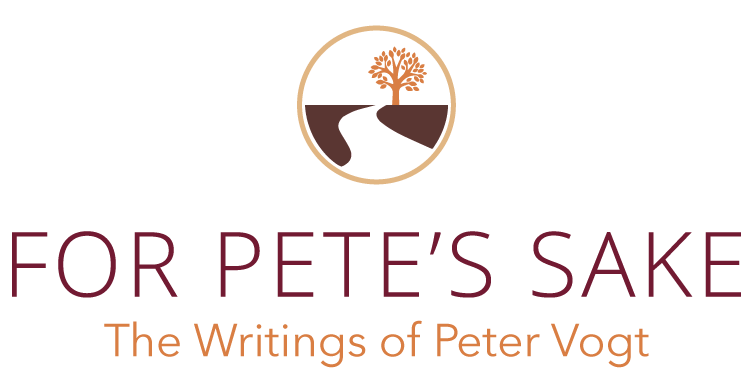Share and Share Alike – It’s a Matter of Trust
The other day I was texting back and forth with my girlfriend, Adrianne, as we do virtually every morning to begin our respective days. I didn’t notice anything particularly different about my behavior, but Adrianne did — and she pointed it out to me in a phone call later that morning. She could tell — from my texts! — that I was feeling a little off; that I wasn’t quite myself. And her suspicions, she said, were confirmed when she heard my voice on the phone.
“You just don’t sound right,” she said.
“I’m OK,” I replied. “I feel fine. A little tired, maybe, but I really do feel fine.”
I truly did believe I was feeling fine — that I was OK. I wasn’t lying to Adrianne or purposely trying to hide anything from her. But she dug harder. God bless her, she dug harder. And sure enough, as I got more honest about it (to myself and to Adrianne), there was more on my mind and in my heart than I was consciously aware of — until I consciously made myself aware of it. Among the blizzard of thoughts and emotions swirling through my mind from the moment I’d woken up:
- I was thinking about how to re-establish my professional life, psychologically and financially, a year and change following the loss of my wife, Lois, to cancer in May 2012. Having basically been on sabbatical over the last 14 months, I’m now in the midst of jumping back into the water — and deep down, I worry sometimes whether I’m still able to swim.
- My 11-year-old son, Isaac, was just a day or two away from attending his first weekend sleepover camp — a camp geared specifically toward kids who have lost a parent, and therefore a mixture of hard emotional discussions and playing hard. Would Isaac do OK at camp? Would I do OK with Isaac at camp — especially when my own memories of Boy Scout camp as a youngster are, shall we say, less than positive?
- My quasi sister-in-law, Cathy, was set to have a PET scan in a matter of days which would determine whether her cancer treatments were working … or not. I’ve seen this movie before; I’ve lived it. The memories of Lois’s many PET scans — and their life-or-death stakes — had been flooding back to me for days, along with the physical anxiety they always brought out in me.
So, despite what I had told Adrianne, I was not particularly OK at all. I was stressed. I was not myself, as Adrianne had already diagnosed. Yet I had told her, with a straight face: “I’m fine.”
Bad move — in two respects.
For starters, I simply wasn’t fine. So reports of my mental well-being had been greatly exaggerated.
Worse, though, for months now I’ve been inviting and encouraging Adrianne to share her feelings and struggles with me following the loss of her husband, to suicide, eight months ago. She was hesitant to do so in the beginning, in great part because she didn’t want to “add to [my] burden.” “But you won’t,” I repeatedly reassured her. “I can handle it. And I want to help because I care about you.” Adrianne has increasingly taken me up on my offers, making me feel so good because in sharing her heart with me, she is demonstrating that she truly trusts me — and that she truly trusts that I have the strength to handle the hard stuff while still managing my own difficulties.
Now it’s my turn.
You can’t ask to be entrusted if you’re not entrusting in return. More specifically in my case, I’ve been asking to be entrusted by Adrianne these past few months, and she has gradually done just that. But in telling her “I’m OK” the other day when I really wasn’t, I was doing just the opposite. In fact, I may have been unwittingly — and harmfully — communicating to her that I do not and cannot entrust her with my difficult thoughts and feelings, and that I don’t have the faith that she can help me carry my load while still carrying hers.
Wrong — as in wrong thing to do and, especially, as in wrong thing for me to communicate to her, unknowingly or not.
I do have faith in Adrianne’s strength to help me and help herself at the same time. And so I will share more of myself with her from this day forward. I must. For the only way to make someone feel truly entrusted is to entrust that person — and through your actions, not just your words.

I’m a writer. An essayist, to be more exact. I tell stories here—true stories, from my own life, in hopes they will make a positive difference in yours.
I share laughs and tears, insights and observations, frustrations and realizations, relying all the while on the storytelling wisdom of Julia Cameron, author of The Right to Write.
It is a great paradox that the more personal, focused, and specific your writing becomes, the more universally it communicates.

Leave a Reply
Want to join the discussion?Feel free to contribute!